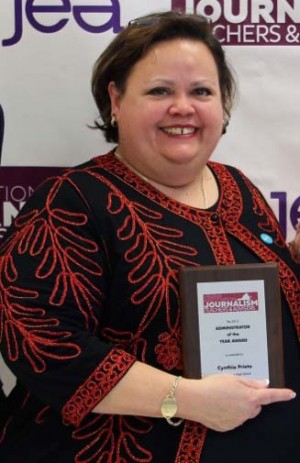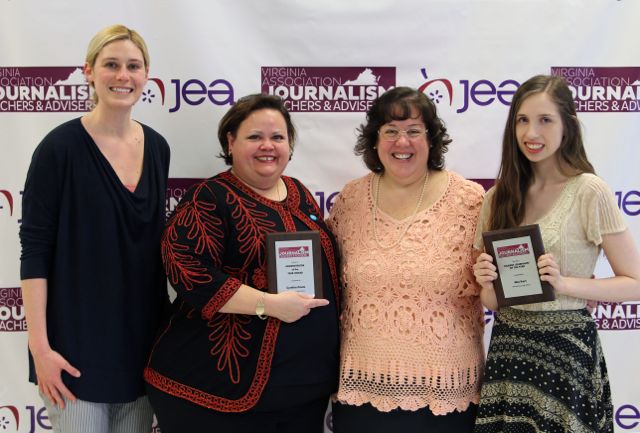Administrating Student Journalists: Responsibility, Communication, Relationships
February 16, 2016
Responsibility, Communication, Relationships.
I am talking about a journalism program, be it newspaper, social media, broadcast or yearbook, of a high school. The roles are a bit different in middle school and definitely in elementary schools. My topic for the first blog is establishing the expectations. As a new principal, I inherited an award winning program, an experienced sponsor and a solid reputation. I brought to it some experience and a philosophy about student journalism. How to marry those?
First, figure out if they are diametrically opposed? Do they conflict at all? If they don’t, what are my contributions to help this program get even better? Enter communication and relationships. If they do, how do we use the strengths of all, and skills they are learning, to keep the program robust? I made the time to get to know the sponsor and the students and let them know me. I made my expectations clear by explaining what was important. For me: “First, do no harm.” Do not publish at any cost. I am not impressed with shock value stories.
The journalism students hosted a reception, invited me and presented their program with pride. I welcomed the student journalists to ask any questions, bounce ideas off me, and take my open door policy seriously. I have come to love our conversations. I throw out questions, ideas and possible stories, and do not expect them to use any or all. I do not pass judgement on ideas they want to pursue. I use those meetings as opportunities to teach. We talk about responsibility, the effect of a topic on a range of people (the subject, the opponents, the supporters, the school, the community), the cost to reputations, the possible backlash, or follow up articles. Many times, they have heard me ask “At what cost?”.
In the last edition, one of the editors was interviewing people about an issue in the school. I heard about it and texted the sponsor, asking about the article and asking her to encourage the editor to interview me. They both understand that the student could choose not to talk with me, but it is an opportunity to get another perspective. We did talk and at the end of the interview, she asked me three times whether I wanted to read her article before it published. I told her it was not necessary and that I trusted her. The truth is that I know her, trust the sponsor and have made my expectations clear. The reality is that it is a risk, every time, and this time she did a great job.
No, I don’t always know what will be published. No, I don’t do prior review. I build the relationships, recognize the hard work, celebrate the successes and keep communicating.
That brings me to the next blog: responsibility and communication. It is my responsibility to maintain communication open with my sponsor.



